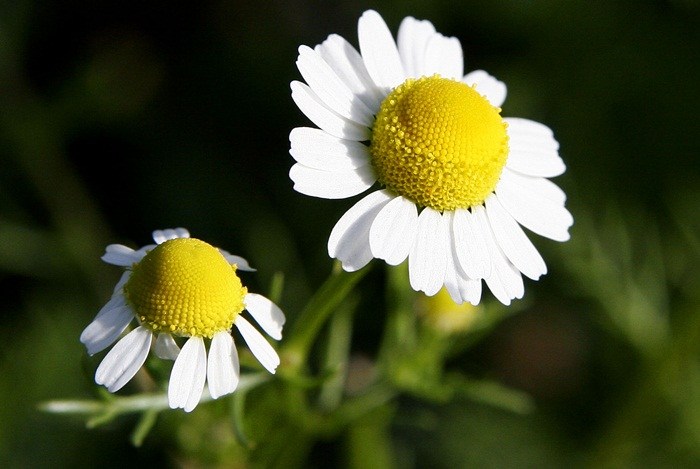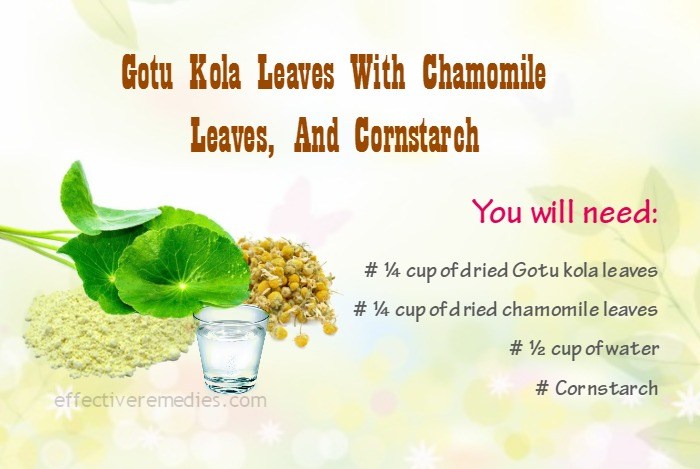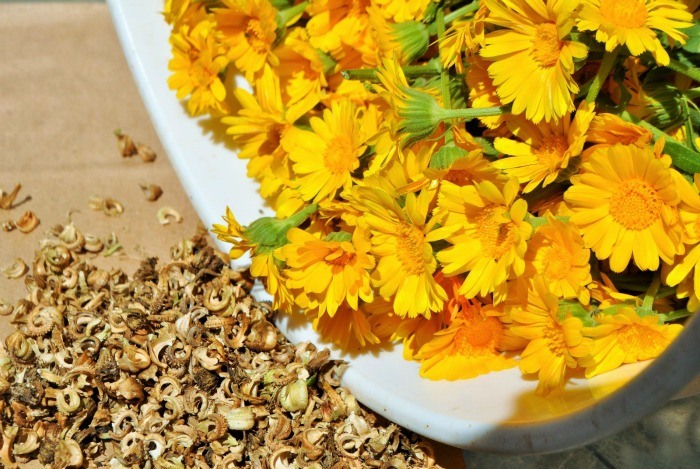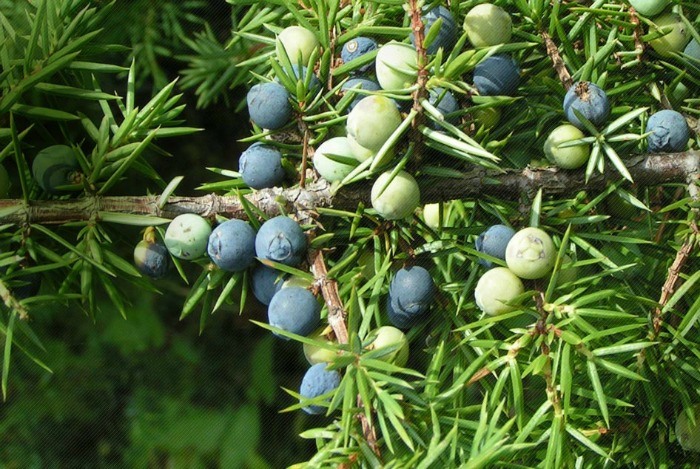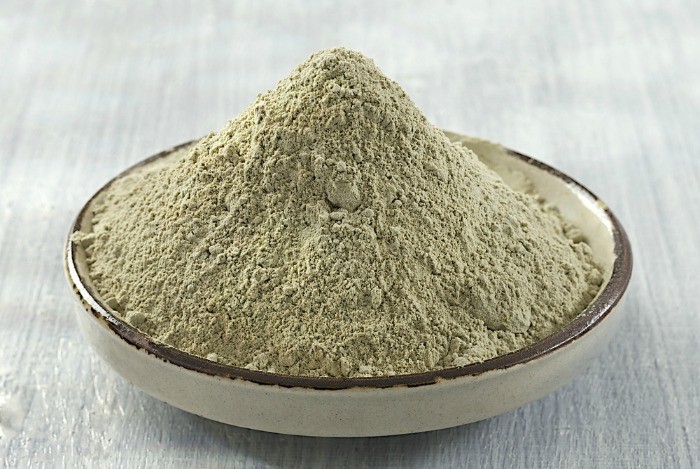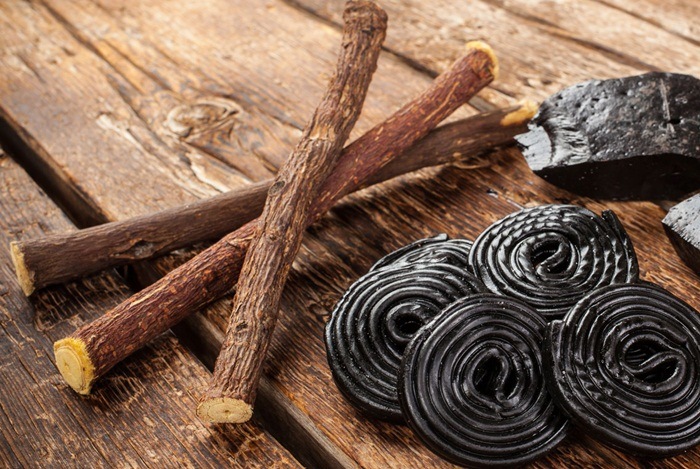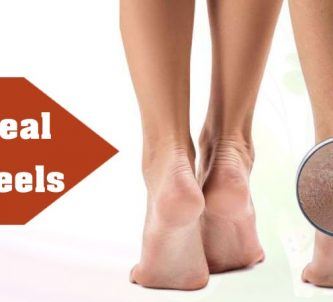updated: 07/20/2019
Contents
To treat eczema at home, firstly you should understand it clearly. Eczema (or called dermatitis) is an inflammation of the skin, acute or chronic. Although eczema is not fatal, it causes itching or dry skin, which makes patients feel unpleasant. This disease will relapse frequently. Like the other skin diseases, eczema also affects much less to the beauty. The clinical manifestations of eczema are varied, but generally, they always have the characteristics such as itchiness, blisters that are arranged in arrays of unknown limit, progressed in a period, and are persistent or recurrent. In the framework of this writing, we will introduce to you top 35 natural home remedies for eczema on face & body in adults without any side effect. These home remedies are collected carefully and completely from reliable sources. However, it is not intended to give medical advice, and it is solely for informational purposes. Continue reading this article to understand more!
- Best natural home remedies for rosacea on face
- Natural home remedies for psoriasis on hands, feet, & other
Top 35 Natural Home Remedies For Eczema On Face & Body In Adults
1. Turmeric And Milk
Turmeric is widely used in the treatment of various skin disorders that include eczema. The antioxidant qualities of turmeric is also beneficial in skin care[1] [2]. In addition, it contains an active ingredient called curcumin, which has bactericidal and anti-inflammatory properties that may help to treat inflammation and itching.
Way 1: Turmeric and milk
You will need:
EffectiveRemedies Partner Solutions

Ask a Doctor Online and Get Answers in Minutes, Anytime!
Have medical questions? Keep asking questions to a Verified Expert until you get the answer you need.
- ½ teaspoon of turmeric
- Milk
Directions:
- First of all, you mix turmeric with a sufficient amount of milk to get a paste.
- Then, you apply this paste to your affected areas
- You should follow this way for about 2 to 3 times per day.
Way 2: Turmeric and boiling water
You will need:
- ½ teaspoon of turmeric
- 1 cup of boiling water
Directions:
- Firstly, you add turmeric to the boiling water.
- Then, you allow it to simmer for about 10 minutes.
- You allow it to cool down the room temperature.
- You can drink this solution or use this water to wash your affected areas.
- You should repeat this way for about 2 or 3 times per day.
2. Indian Lilac (Or Neem)
Indian lilac (or neem) is one of the home remedies for eczema. Neem contains antibacterial, anti-inflammatory, antimicrobial, and analgesic properties[3] [4] [5] that may relieve the signs of eczema such as dryness, pain, redness, inflammation, and swelling[6]. In addition, neem oil is rich in vitamin E and essential fatty oils that may help to keep your affected skin moisturized. Neem oil and neem leaves can be used to remove eczema.
Way 1: Neem leaves, turmeric root, and sesame oil
You will need:
- Neem leaves – 1 tablespoon
- Turmeric root – 1 tablespoon
- Sesame oil
Directions:
- Firstly, you grind turmeric root and neem leaves.
- Then, you add a little sesame oil to it to make a fine paste.
- You apply this paste to your affected areas.
- You allow it to dry.
- After that, you rinse it off with lukewarm water.
- You should repeat this treatment for about 1 to 2 times per day for a few months.
Way 2: Neem oil
You will need:
- Neem oil – a few drops
Directions:
- Firstly, you add neem oil to a bathtub filled with warm water.
- Then, you soak in it for about 15 to 20 minutes.
- After that, you pat dry your skin.
- Then, you apply some light moisturizer.
- You should use this treatment for one time per day for 1 or 2 months.
Way 3: Neem leaves and mustard oil
You will need:
- 50 grams of neem leaves
- 200 grams of mustard oil
- An iron vessel
Directions:
- You put mustard oil in an iron vessel.
- Then, you heat the oil.
- When this oil begins boiling, you add neem leaves to it.
- You allow it to boil until the leaves turn black and you put off the flame.
- After that, you allow the oil to cool down before straining.
- Then, you strain it, and you can store for your usage.
- Finally, you apply this neem to your affected areas.
- You should follow this way for about 3 to 4 times per day.
3. Chamomile
Chamomile contains anti-inflammatory and antioxidant properties[7] [8] that may help to reduce the itchiness, inflammation, redness, and swelling. In addition, it may also help to boost up your immune system that will help to kill the bacteria. Therefore, chamomile is one of the natural home remedies for eczema[9].
Way 1: Dried chamomile flowers
You will need:
- Dried chamomile flowers – 1 tablespoon
- Boiling water – 1 cup
- A clean cloth
Directions:
- Firstly, you add the dried chamomile flowers to the boiling water.
- You allow it to steep for at least about 15 minutes.
- Then, you strain it and allow this solution to cool.
- After that, you soak a clean cloth in it, and then you place it on your affected areas for 10 – 15 minutes.
- You should use this treatment for 2 to 3 times per day.
Way 2: Chamomile oil and olive oil
You will need:
- Chamomile oil – a few drops
- Olive oil – 1 teaspoon
Directions:
- You mix chamomile essential oil with olive oil together.
- Then, you apply it to your affected areas and gently massage for 5 to 10 minutes.
- You should repeat this way for at least 2 times per day.
4. Epsom Salt And Lavender Oil
One of the soothing home remedies for eczema is using Epsom salt. It contains the magnesium sulfate that has anti-inflammatory properties, which may help to reduce inflammation and relieve itching and pain[10]. In addition, Epsom salt may also promote the elimination of toxins from your body, and the antimicrobial effect present in it may help to decrease the inflamed eczema lesions.
You will need:
- Epsom salt – 1 to 2 cups
- Lavender essential oil – 10 to 15 drops
Directions:
- First of all, you mix Epsom salt in a bathtub filled with warm water.
- Then, you add lavender essential oil to the bathtub.
- You soak in it for about 15 to 20 minutes.
- After that, you pat dry your skin.
- Then, you apply some natural moisturizer.
- You should do this way for about 2 to 3 times per week.
Precaution: People who suffer from heart diseases, diabetes, or high blood pressure should not take a bath with Epsom salt.
5. Aloe Vera Gel And Vitamin E Oil
Aloe vera contains a healing property for both the inside & outside of your body.
It has an effect that may boost your immune system for increasing the healing process. In addition, it may reduce inflammation, swelling, and itchiness of your skin.
Vitamin E contains an antioxidant property[11]. Therefore, the combination of aloe vera and vitamin E is one of the effective home remedies for eczema. According to a systematic review in 2015, aloe vera gel has antibacterial, immune system-boosting, antimicrobial, and wound-healing properties[13]. The antimicrobial and antibacterial effects may prevent skin infections due to dry, cracked skin. Its wound-healing properties may help to soothe broken skin and increase the healing process.
You will need:
- An aloe vera gel
- Vitamin E
Directions:
- You mix the gel of a fresh aloe vera leaf and vitamin E oil properly.
- Then, you apply it to your affected areas of eczema.
- You allow it to sit on there for a few minutes.
- After that, you wash it off with clean water.
6. Sandalwood, Camphor, And Rosewater
Sandalwood is one of the effective home remedies for eczema. It contains soothing, cooling, anti-inflammatory, and antimicrobial properties[14] that may help to soothe the irritated and dry skin. In addition, sandalwood may help to get rid of the scars of eczema.
You will need:
- Sandalwood powder – 1 teaspoon
- Camphor – 1 teaspoon
- Rosewater
Directions:
- You mix sandalwood powder, camphor, and sufficient rosewater to get a thick paste.
- Then, you apply this paste to your affected skin.
- You allow it to sit on there for about 10 minutes.
- After that, you rinse it off with warm water.
- You should repeat this way for about 1 to 2 times per day for a month.
7. Nutmeg
Nutmeg contains anti-inflammatory properties that may help to reduce inflammation[15] and relieve the pain from eczema. You can scrape a fresh nutmeg with the help of a cheese grater to make it in powder form.
Way 1: Nutmeg powder and olive oil
You will need:
- Nutmeg powder – 1 tablespoon
- Olive oil – 1 teaspoon
Directions:
- First of all, you mix the powder of nutmeg with olive oil to get a thick paste.
- Then, you apply this paste to your affected areas.
- You allow it to stay on there for about 15 to 20 minutes.
- After that, you rinse it off with cold water.
Way 2: Nutmeg, Cinnamon, and honey
You will need:
- Nutmeg
- Cinnamon
- Honey
Directions:
- You take equal parts of nutmeg, cinnamon, and honey and you mix them well to make a paste.
- Then, you apply this paste
- to your affected areas.
- You allow it to stay on there for about 30 minutes.
- After that, you rinse it off with tepid water.
You can follow either of these home remedies for eczema using nutmeg for one time per day for a few weeks until you can get rid of the symptoms of eczema completely.
8. Gentian Tincture
Gentian tincture contains a property that may eliminate the toxins[16] [17] and help your digestive system to digest completely and properly. In addition, it may reduce the signs of eczema.
Directions:
- First of all, you get gentian tincture.
- Then, you consume 10 drops of it before each meal.
- You should do it every day.
9. Cucumber
Cucumber contains antioxidant substances[18] [19] that may aid in treating eczema through detoxification of your skin and organs. It also has an anti-inflammatory property that may absorb the nutrients from the inside out and allow the vitamins and minerals to heal eczema. It is rich in vitamin A that may aid in improving the functioning of your immune system to treat your problem.
Way 1: Cucumber
You will need:
- 1 or 2 cucumber
- Water
- A clean cloth
Directions:
- You cut cucumbers into thin slices.
- Then, you let it soak in water for about 10 minutes.
- After that, you filter the liquid from these slices.
- Next, you use a clean cloth to apply the liquid to your affected areas of eczema.
You can also consume a raw cucumber one time per day. Or you can apply the slices of cucumber directly to your affected areas; it will allow the ascorbic and caffeic acids to relieve the inflammation and redness, and treat eczema.
Way 2: Cucumber and milk
You will need:
- A cucumber
- Milk
- A blender
Directions:
- First of all, you put cucumber into a blender to make it juice.
- Then, you add milk to it.
- Next, you mix the cucumber juice and milk properly.
- Now, you apply this mixture to the affected areas of your skin.
- You allow it to stay on there for a few minutes.
- After that, you rinse it off with clean water.
- Follow this way regularly
10. Gotu Kola, Chamomile Leaves, And Cornstarch
Gotu kola is an herb that is used as one of the natural home remedies for eczema. Some studies suggest that using Centella asiatica (Cucumber) or its components helps to treat psoriasis and scleroderma. Moreover, Centella asiatica is commonly added to cosmetics that are used on photoaging skin[20]. You can make a fine ointment with this herb to apply on your affected areas of eczema.
You will need:
- ¼ cup of dried Gotu kola leaves
- ¼ cup of dried chamomile leaves
- ½ cup of water
- Cornstarch
Directions:
- You boil the water.
- Then, you add the dried Gotu kola leaves and chamomile leaves to the boiling water.
- You allow it to steep for about 10 minutes.
- Now, you strain it and add a sufficient amount of cornstarch to get a thick paste.
- Then, you apply this paste to your affected areas of eczema.
- You allow it to dry naturally.
- Finally, you wash it off with normal water.
- Follow this way regularly.
11. Ground Horsetail Herb
Horsetail Horsetail has antibacterial, regenerating, and remineralizing effects. It is also rich in potassium, silicon, and flavonoids, which plays an important role in the proper functioning of fast-growing tissues: epidermis, nails, and hair[21]. It may also stimulate the production of the new skin cells because it has a high silica content that may help to reduce the symptoms of eczema.
You will need:
- Ground horsetail herb – 50 mg
- Water – 1 liter
Directions:
- You mix the ground horsetail herb in water to make a paste.
- Then, you boil the paste for about 10 to 15 minutes.
- You let it cool for a while before applying it.
- Now, you filter this liquid into the bath water.
- Then, you take a bath with the liquid for about 10 to 15 minutes.
- You should repeat this remedy regularly.
12. Babul Bark, Mango Tree Barks, And Ghee
The bark of babul tree is useful in the treatment of health and beauty diseases. Babul barks also have a cooling effect. The bark of the babul and mango tree may get rid of eczema[22]. This is a recipe for getting a hot compress for eczema using these herbs.
You will need:
- 30 g of babul bark
- 30 g of mango tree bark
- 1 liter of water
- A towel
- ¼ to 1 teaspoon of ghee (clarified butter)
Directions:
- First of all, you add the babul bark and mango bark in water.
- Then, you boil this water for about 30 minutes.
- Next, you take the towel, and you fold it.
- You soak this towel in hot water. You should be careful because the water is still so hot. If needed, you allow the water to cool down a little.
- After that, you take out the hot towel and then you have to check it for the proper temperature. You need to put it on your skin where having eczema rashes and you have to be careful.
- Now, you put the hot towel on the area affected areas of eczema.
- You allow it to be there for a while until it cools off.
- You soak the towel again, and you can continue using the hot compress.
- You should do this way for about 20 to 30 minutes.
- Finally, you pat dry your skin, and then you apply ghee (clarified butter) to your skin.
13. Calendula Flowers & Lavender Essential Oil
Calendula may aid in eliminating the bacteria, reducing the inflammation[23] [24] and help your skin to get quick relief from eczema. The lavender essential oil contains antiseptic, antibacterial, anti-inflammatory properties and may help to boost your immune system; the lavender essential oil is also used as an effective stress reliever.
You will need:
- Calendula flowers
- Lavender essential oil – 5 drops
Directions:
- You mix the calendula marigold flower with lavender essential oil to make a fine tea.
- Then, you apply it to the affected areas of eczema.
- You should repeat this way for about 1 to 2 times per day to get quick relief from the irritation and eczema.
14. Tree Tea Oil And Olive Oil
In addition to being a strong antimicrobial agent against types of bacteria, viruses, parasites, and fungi, tea tree oil is effective in treating eczema. It helps to soothe the skin while its anti-inflammatory compounds reduce any edema[25]. A 2013 review notes that tea tree oil contains antibacterial, anti-inflammatory, and wound-healing effects. It may help to give you relief from dry, itching skin and prevent infections[26]. You can add tea tree oil in your bath water to get quick relief from the symptoms of eczema.
Way 1:
You will need:
- 10 to 15 drops of tea tree oil
- 1 to 2 tablespoons of olive oil
- Warm bath water
Directions:
- First of all, you add tea tree oil to the warm bath water.
- Then, you add olive oil to your bath.
- Now, you take a bath with this water.
- You should do this way not more than 2 times per day.
Way 2:
You will need:
- 8 to 10 drops of tea tree oil
- ¼ cup of olive oil
Directions:
- You add the tea tree oil to olive oil, and you mix them well.
- Then, you apply this oil to the affected skin areas of eczema.
- You should repeat this way for about 2 to 3 times per day.
15. Juniper Berry, Sage, And Thyme
Juniper berry works as an antiseptic, antibacterial, and anti-inflammatory agent[27] that may help to prevent eczema. It also works as a soothing property that may help to calm and repair the irritated skin. Moreover, sage will aid in soothing the irritated areas. Thyme is an effective antimicrobial that may help to reduce the viruses during infections and eczema.
You will need:
- 1 tablespoon of ground juniper berry
- 1 tablespoon of sage
- 1 tablespoon of thyme
- 1 cup of boiling water
Directions:
- You mix the ground juniper berry, sage and thyme in the boiling water.
- Then, you cover this for about 5 to 10 minutes.
- After that, you consume this water as a drink after having your main meal.
- You should repeat this way regularly.
16. Olive Oil And Honey (Or Sugar)
Olive oil is a safe oil, which is used to treat the signs of eczema. It is especially helpful in soothing the flare-ups and relieving the inflammation. Olive oil has squalene and oleocanthal components, which contain antioxidant and anti-inflammatory properties[28] [29] that may help you to get relief from the flaky, itchy, dry skin caused by eczema. In addition, olive oil also has vitamin E that may aid in restoring the lost moisture of the skin and repair your damaged skin fast.
Apart from applying olive oil to the affected skin areas of eczema, you can make a combination of honey (or sugar) and olive oil to help you to get rid of eczema quickly. A review confirms that honey may heal wounds and enhance immune system function, which is beneficial in helping the body to fight off infections[30]. According to another review, honey helps to treat a variety of skin diseases, including wounds and burns, and it has the antibacterial capability[31].
You will need:
- 10 to 12 drops of extra virgin olive oil
- 1 to 2 teaspoons of honey or sugar
- ¼ cup of water
Directions:
- You add olive oil and honey or sugar to the water, and you mix them well.
- Now, you apply this mixture to the affected skin areas of eczema.
- You allow it to stay on there for about 3 to 4 hours.
- You should repeat this way for 1 to 2 times per day.
17. Calcium Bentonite Clay And Tea Tree Oil
Calcium bentonite clay may draw out all toxins that include viruses, bacteria, etc. from the body. Baking soda works as a natural antiseptic agent and foaming action that may deeply cleanse the affected areas of eczema and help to relieve the rash and inflammation.
Tea tree oil is antiseptic and antibacterial, and it may soothe the inflammation and itchiness.
Sea salt works as an exfoliant that may remove dead skin cells. It may also relieve the itchiness and inflammation. Moreover, taking a bath with sea salt water improves skin hydration, improves skin barrier function, reduces inflammation, and relieves redness and roughness[32].
You will need:
- 4 teaspoons of calcium bentonite clay
- 4 teaspoons of baking soda
- ½ to 1 tablespoon of sea salt
- 10 to 15 drops of tea tree essential oil
- ¼ cup of water
- A jar with a tight lid
Directions:
- First of all, you mix all the above ingredients except water and tea tree essential oil.
- Then, you pour water over them, and you stir them continuously to mix well.
- You should keep pouring water until you get the desired consistency.
- Now you add the tea tree essential oil to it, and you continue stirring them.
- You can store this mixture in a jar, and you keep it in your refrigerator.
- You allow it to stay up to about two weeks.
- After that, you apply this lotion to the affected areas of eczema whenever needed.
18. Colloidal Oatmeal
Oatmeal contains phenolic compounds called avenanthramides, which offer antioxidant and anti-inflammatory effects. Therefore, it may help to soothe your skin and eliminate the itchiness caused by eczema. The high concentration of beta-glucan and starches in oatmeal help to protect the skin and moisturize it. Very finely ground oatmeal, also called colloidal oatmeal, is one of the common ingredients in lotions for treating dry skin or dermatitis.
According to a study published in the Dermatology using a topical emollient containing oats helps to reduce the number of topical corticosteroids[33].
Another clinical study evaluated a skincare regimen with oats for atopic dermatitis. 50 dermatitis patients were divided into two groups. The treatment group used a body cream based on oats twice daily, and a body wash based on oats once daily in the bath or shower. After 7 days, the patients using the oat products reported significant improvements in eczema and itchiness. They also reported an improvement in skin texture and decreased discomfort[34].
According to two clinical trials, after 2 weeks of use, patients have a greater improvement in eczema scores and itches[35].
You will need:
- Rolled oats
Directions:
- First of all, you grind the rolled oats into a powder to make colloidal oatmeal.
- Then, you add a few handfuls of this to running bath water.
- You dissolve it completely in the bath water until it becomes a milky white form.
- Then, you soak in it for about 15 minutes, but you will feel a little bit burning and irritated.
- After that, you rinse it off with clean water.
- You pat your skin dry, and you use a natural moisturizer on the affected areas of eczema.
- You should repeat the process for about 2 to 3 times per day.
19. Licorice Root
It contains an anti-inflammatory property that may help to reduce the inflammation and itchiness related to eczema.
According to a study in the Journal of Dermatological Treatment in 2003, licorice extract can be considered as a natural & effective agent for treating atopic dermatitis[36].
You will need:
- 1 teaspoon of dried licorice root
- 8 to 10 ounces of water
Directions:
- First of all, you add the dried root of licorice to water.
- You allow it to simmer for about 15 to 20 minutes.
- After that, you drink the liquid for 2 to 3 times per day.
20. Plain Yogurt And Peas
Yogurt has probiotic bacteria that directly influence your immune system by raising the production of the mucosal immune defender. In addition, peas may soothe the itchy and irritated skin and treat eczema. A 2018 review in PLoS Medicine found that supplementation with maternal probiotics during pregnancy and lactation helped to reduce the risk of developing eczema[37].
You will need:
- 1 cup of plain yogurt
- A handful of fresh peas
- A blender
Directions:
- First of all, you put yogurt and fresh peas into a blender.
- Then, you blend it thoroughly to make a creamy paste.
- Now you apply the creamy paste to the affected areas of eczema.
- You allow it to sit on there for about 10 minutes.
- Finally, you use a cotton ball that is soaked in warm water to remove the creamy paste.
- You should follow this remedy regularly.
21. Apple Cider Vinegar
Apple cider vinegar contains myriad of essential minerals and vitamins that include pectin, beta-carotene, sodium, potassium, magnesium, calcium, iron, phosphorus, iron, and sulfur that may help to boost your immune system to help to control eczema[38]. Apple cider vinegar contains an antioxidant called beta-carotene. It may help to restore the skin cells and the health of the skin and give you relief from eczema. The National Eczema Association report that using apple cider vinegar is beneficial in relieving the condition[39]. However, you should use caution, as the acids of the vinegar may damage soft tissue.
Way 1: Diluted apple cider vinegar
You will need:
- Apple cider vinegar
- Water
- A cotton ball
Directions:
- First of all, you take an equal amount of vinegar and water.
- Then, you mix it well, and you use a cotton ball to apply it directly to the affected areas of eczema.
- Or simply you can pour this solution into a spray bottle to spritz onto your affected areas of eczema.
- If you have sensitive skin, you have to dilute ¼ cup of apple cider vinegar into three cups of water, and then you dip a cotton ball in the mixture. You apply it to your affected areas of eczema.
- You should repeat the process regularly for at least 2 times per day, once at night before going to bed and once in the morning.
Way 2: Apple cider vinegar bath
You will need:
- 2 cups of apple cider vinegar
- Warm bath water
Directions:
- First of all, you add apple cider vinegar to warm bath water.
- Then, you mix it well, and you soak yourself in this bathtub for at least about 30 minutes.
- You should repeat this bath regularly for about 3 to 4 times per week.
- This process will help in restoring the moisture to your skin, removing the dead skin cells, and then reducing symptoms of eczema fast.
Way 3: Apple cider vinegar liquid
You will need:
- 1 tablespoon of apple cider vinegar
- 16 ounces of tepid water
- Honey
Directions:
- First of all, you dilute apple cider vinegar in tepid water.
- Then, you add a little honey to taste.
- Next, you mix them well.
- Finally, you drink this solution 30 minutes before meals for at least 3 times per day
- You should follow this way regularly.
- Or you can also add 1 teaspoon of apple cider vinegar to 1 glass of water, and you drink this solution throughout the day.
- Remember that you have to apply the natural moisturizer after using apple cider vinegar because it may dry out your skin.
Way 4: Apple cider vinegar, baking soda, and honey
You will need:
- 2 tablespoons of organic apple cider vinegar
- ¼ teaspoon of baking soda
- ½ cup of water
- Honey to taste
Directions:
- First of all, you mix the organic apple cider vinegar with baking soda.
- Then, you add the mixture to water, and you stir it until this mixture becomes fizzy.
- After that, you mix this with a little honey.
- You drink this solution to get relief from eczema.
Precaution: Remember that you do not take it straight because it will burn your stomach and throat, and it will ruin your tooth enamel.
22. Coconut Oil
Coconut oil has antifungal, antioxidant, antibacterial, and antimicrobial properties that may help in soothing the itchiness of your skin and reducing the inflammation that is caused by eczema. This oil contains great moisturizing effects and may act as a great replacement for other expensive creams for eczema. It is also a natural emollient and contains anti-inflammatory effects[40]. So, coconut oil is one of the natural home remedies for eczema. According to a randomized clinical trial, using virgin coconut oil on the skin in children for 8 weeks may help to improve eczema symptoms better than mineral oil[41].
Way 1:
You will need:
- Coconut oil – 2 to 4 tablespoons
Directions:
- Simply you just take coconut oil as a supplement in the daily diet.
- This process will help to improve the immunity system of the people who suffer from eczema.
- It may also help your body to fight fungal skin conditions such as eczema, psoriasis, and dry skin.
- In addition, you can add coconut oil directly to the foods, smoothie, and drinks.
Way 2:
This process will help your body to get all the essential minerals, vitamins, and fats, which is essential to have a healthy immune system to fight eczema.
You will need:
- Coconut oil
Directions:
- First of all, you take a sufficient amount of coconut oil.
- Then, you apply it directly to your affected areas of eczema.
- You should continue applying this coconut oil to your affected skin areas of eczema for at least 2 to 3 times per day.
- You should apply it at night before going to bed, and you keep it overnight.
- You should repeat the same process regularly.
Way 3: Coconut Oil Vinaigrette
You will need:
- ¼ cup of vinegar
- ½ cup of coconut oil
- ½ cup of olive oil
- Sea salt and pepper
- A small bowl
- A glass jar
Directions:
- First of all, you take a small bowl, and you mix all the above ingredients well in it.
- Then, you store it in a glass jar, and you keep it in your refrigerator.
- However, you have to warm it to room temperature before you use it.
- You pour it over the fresh salad vegetables and consume it.
- You should use this way regularly.
Way 4: Coconut oil with camphor
This process will give you the cooling effect on the affected areas and provide you instant relief from the itching.
You will need:
- Coconut oil – a few drops
- Camphor
Directions:
- First of all, you mix coconut oil with camphor together.
- After that, you apply it to the affected areas of eczema.
- You allow it to sit on there for 3 to 4 hours or overnight.
- In the next morning, you rinse it off with water.
- You should repeat it regularly.
If you want to know more about natural home remedies for other diseases and conditions, go to our main Home Remedies page. After reading the article of the top 35 natural home remedies for eczema on face & body in adults, hope that it can help you find out the best solution to get rid of eczema quickly and easily. However, the article is only for informational purposes. Thus, you should meet your doctor to get advice before applying any at home remedy.




